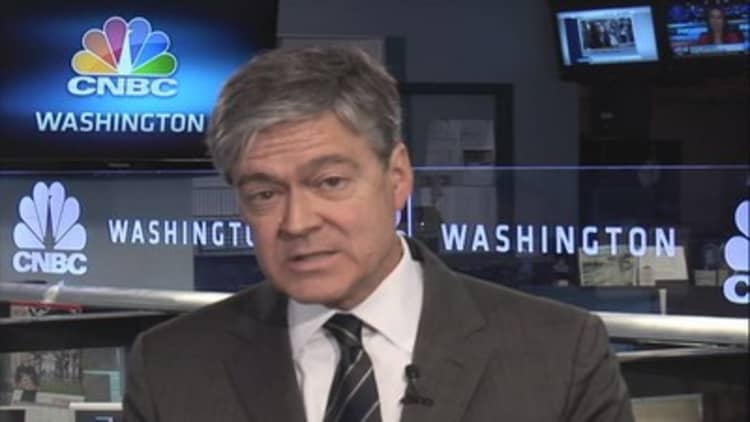Policymakers at the Federal Reserve were sharply split last month over whether to trim the U.S. central bank's massive bond-buying stimulus, although they ultimately chose not to, a top Fed official said on Friday.
The decision, by 17 top Fed officials after two days of discussion led by Fed Chairman Ben Bernanke, was a "close call," Dallas Fed President Richard Fisher told a group of business leaders at the Clinton Presidential Center in Little Rock, Ark.
"There are straw votes taken along the way," he said, describing the Fed's regular policy-setting meetings. "At this last session, it was a close call."
(Read more: US bonds move lower on fourth day of shutdown)
Fisher's remarks are unusual because Fed policymakers typically avoid characterizing the overall tone of discussion at the policy-making table, sticking more to their personal views.

Fisher himself argued for reducing the Fed's $85-billion-a-month bond-buying program. While the purchases of mortgage-backed securities have helped the housing sector, he said, the Fed's purchases of Treasurys have not been effective.
"Those that have a different view think we should keep doing what we are doing, and now that we are in this situation—although we didn't foresee it, we thought about it as a possibility, but without the full expectation there would be a government shutdown—that changed the whole game," Fisher said. "We'll have to see how we resolve this, and then what we do in our next meeting."
The current political impasse was in sharp focus at the venue, where all exhibits were closed because of the federal government shutdown.
(Read more: Reasons for optimism, and fear, in budget battle)
Fisher warned against allowing the shutdown to turn into a debt default, saying a default would disrupt world markets.
—By Reuters

